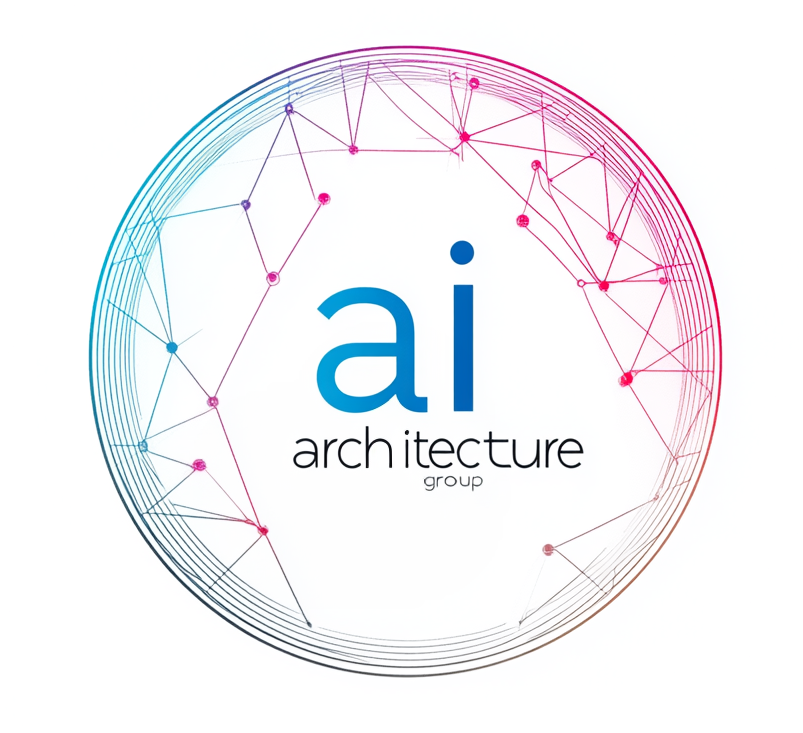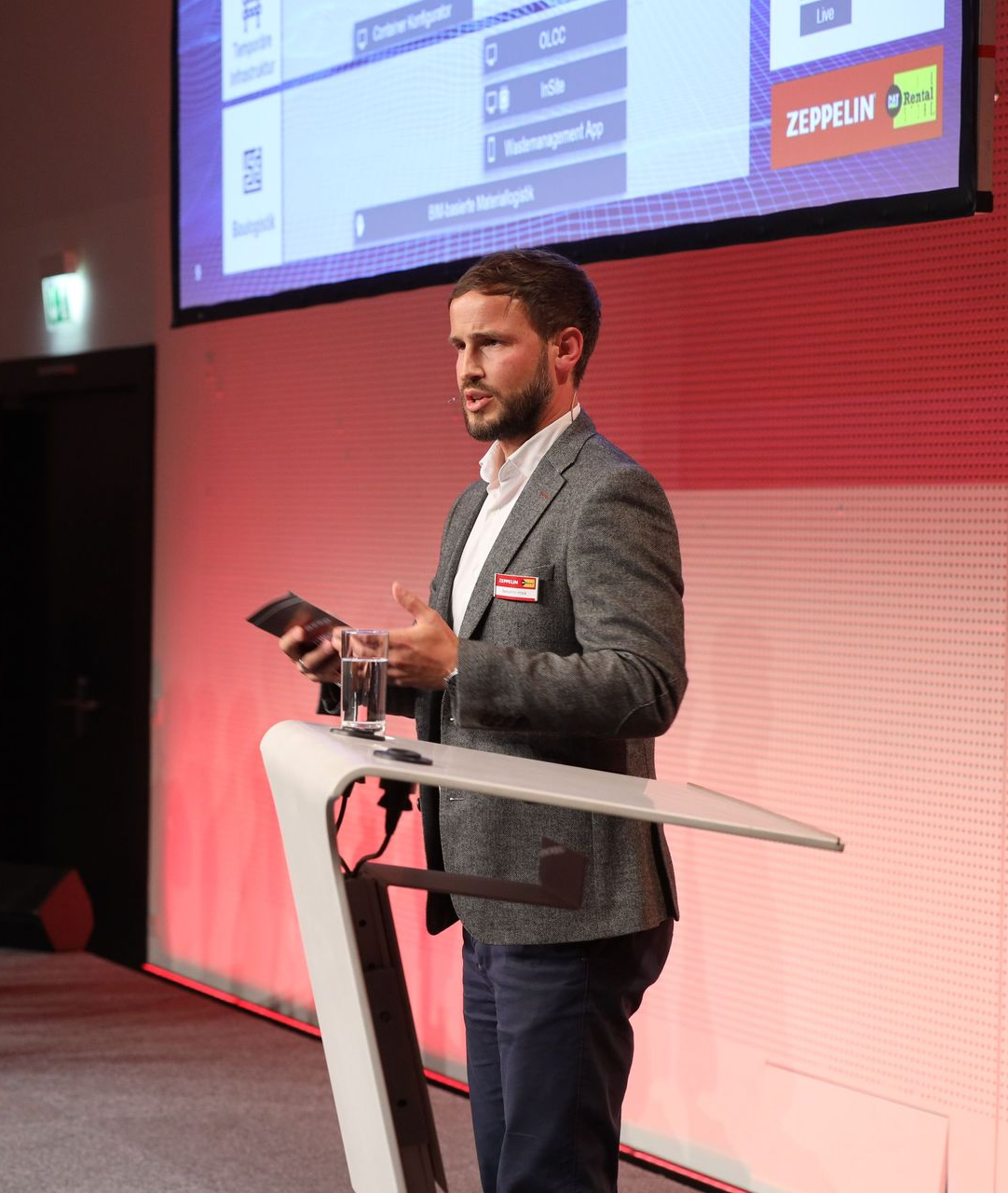AI TALK Interview: "Customer, AI and Chatbots" with Benjamin Höck, Head of Digital Business & Partnering, Zeppelin Rental GmbH
Zeppelin Rental is considered an innovative player in the field of rental and construction logistics services. Especially interesting: how AI is transforming rental processes, service, and customer relations. We’re pleased to speak today with Benjamin Höck, who heads the Digital Business & Partnering division at Zeppelin Rental.
Conducted as part of the “AI Talk” series by the AI Architecture Group.
AIAG: Mr. Höck, is AI already changing Zeppelin Rental’s business?
Benjamin Höck: Yes. Our aim with AI is to optimize and automate processes to increase customer value and improve the customer experience. Currently, we are focusing on two areas that directly impact our clients. First, we want to enhance the customer experience on our website using an AI-based chatbot. We deliberately rely on a proven market-ready solution to accelerate deployment. Second, we are developing a voice bot for our main customer hotline. Customers expect to reach us 24/7. The voice bot is designed to handle routine tasks like rental inquiries, off-renting equipment, or checking statuses. The system identifies the caller so their request can be processed immediately. Our goal is fast, reliable, and consistent service.
AIAG: What’s the timeline? Which solution goes live first?
Höck: The chatbot is in development, the voice bot is in pilot testing. We plan to roll it out in the coming weeks, followed shortly by the chatbot.
AIAG: Let’s talk about the equipment itself. What role does AI play there?
Höck: Zeppelin has partnered with Caterpillar for 75 years; Zeppelin Rental is part of the “The Cat Rental Store” network. We are closely linked to OEM developments and benefit from them. Predictive maintenance already uses AI: sensors and telemetry detect patterns, predict service windows or refueling needs, and report anomalies. In the future, AI agents will act automatically — ordering parts, dispatching service teams, reserving maintenance windows before an alert even appears. This increases uptime, improves availability, and adds customer value.
AIAG: You mentioned a shift from “Smart Machines” to “Smart Construction Sites.” What does that mean?
Höck: Previously, individual machines were the focus. Today, we view the entire site as a system. With our logistics services, we support projects from planning with BIM models through to execution: power and water supply, site logistics, traffic control, delivery and waste disposal, vertical transport — all generate data. If we standardize and use this data throughout the project phases, we unlock enormous efficiency and sustainability potential. But the construction industry must walk this path together.
AIAG: Who needs to be involved?
Höck: Everyone on site. It’s not enough for just the general contractor to go digital. Subcontractors, logistics partners, rental providers, suppliers — everyone must input and use data. The key question is: what if all construction site data — from planning to operation — were accessible? Only then can AI-powered processes truly automate, not just document.
AIAG: Construction is seen as slow to innovate. Do you agree?
Höck: Studies do place the industry behind in digital transformation. But there are reasons: construction sites vary greatly — some in urban centers, others by ports or rural areas. Infrastructure, energy access, logistics — all differ. You have government agencies, construction firms, and service providers. There are pioneers and late adopters — but no one ignores AI anymore. The focus must be on shared data standards to make digitization cost-effective for all stakeholders.
AIAG: Are there external initiatives influencing your work?
Höck: AI and digital transformation are reshaping the global economy at breakneck speed — affecting all industries and societies. Construction is no exception. One exciting initiative is Construct-X — a joint R&D project with 34 partners from construction, software, trades, and research. It aims to create a federated construction data space based on Gaia-X principles, securely connecting all players from material suppliers to clients in real time. We actively contribute our expertise, perspective, and data — for example through events like BIM World in Munich.
AIAG: Are pilot projects with startups or research institutions interesting for Zeppelin Rental?
Höck: Absolutely. We’re active on most German construction sites, so we’re an ideal partner for real-world testbeds. We’ve already helped several startups bring products to market — e.g., for smart traffic safety systems or sensor- and AI-based site monitoring and optimization. Our innovation team welcomes research contacts and pilot requests.
AIAG: How do your customers respond to AI — especially voice bots?
Höck: We track it transparently: satisfaction ratings, dropout rates, success by intent. AI doesn’t replace people — it supports them, especially during peak times. What matters is that customers always get calm, clear, and reliable responses. If something is complex, it gets escalated to a human. Most people already know these systems from daily life — in the end, the customer chooses how they interact: in person, by phone, email, procurement system, or AI agent.
AIAG: What short-term changes will construction companies see?
Höck: Interfaces will change: rental requests, off-hiring, service processes — all become faster, more structured, and proactive. Medium term: predictive maintenance integrated with logistics and scheduling. Long term: a fully digitized, standardized “Smart Construction Site” based on a digital twin — orchestrating resources, deliveries, equipment, and personnel with intelligence.
Interview condensed and edited for publication.



